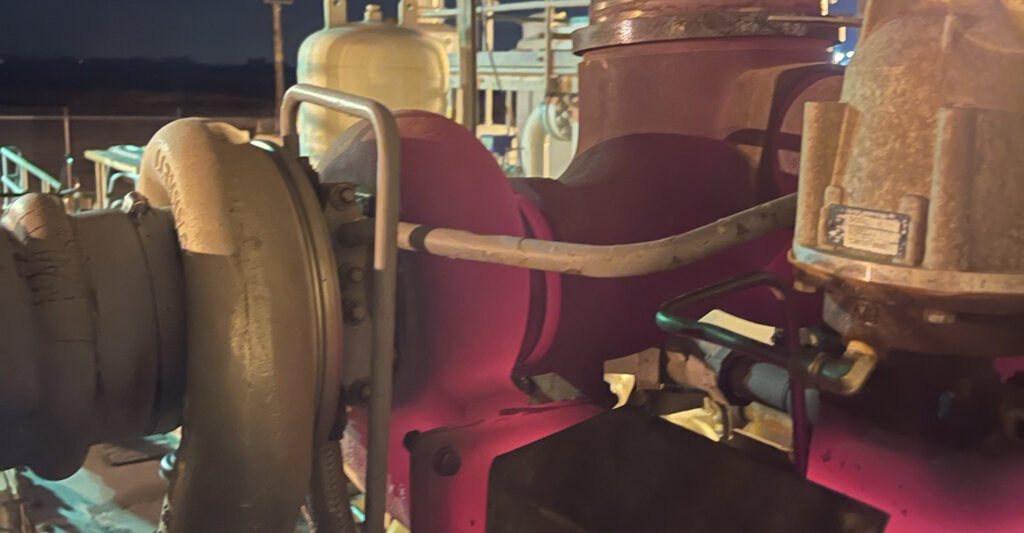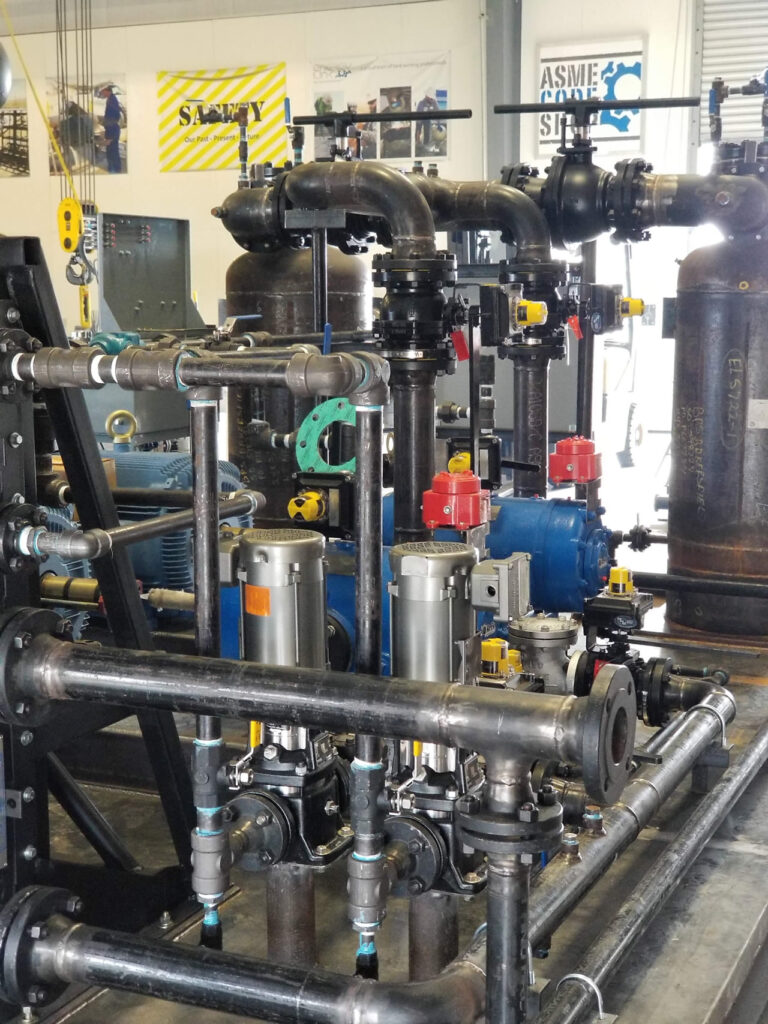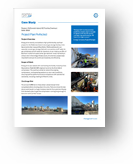
Big coolers moderate the heat generated by compression.
Natural Gas Compression
We offer field and shop services, contract compression services, new-build compression packages, and used or refurbished compression packages. Applications include:
- Natural Gas Compression
- Gas Gathering
- Gas Lift
- Gas Storage
- Injection
- Pipeline Booster Stations
- Vapor Recovery
- Evacuation
Hydrogen Compression
The most abundant element in the universe, hydrogen fuel, is clean, flexible, and energy efficient.
- H2 can be transported as a gas by pipelines or in liquid form by ships, much like liquefied natural gas (LNG).
- H2 can be transformed into electricity and methane to power homes and feed industry and into fuels for cars, trucks, ships, and planes.
- H2 can enable renewables to provide an even greater contribution.
Somewhere along the way, Hydrogen must pass through a gas compressor. H2 gas compressors have a different set of specifications because the Hydrogen molecule is so much smaller, and the build standards are tighter.
Before selecting a compressor, the operator should know the value of the compression ratio, the heat of compression, duty cycle, packaging, location, and lubrication system.

Energy Link is a certified packager and parts distributor for Ariel Compressors. Efficient compressor operation relies on properly maintained valves. Energy Link offers comprehensive valve services performed by OEM-trained technicians, including:
- Inspections
- Diagnostics
- Repairs
- Replacements
We focus on optimizing performance and extending the life of your compressor system while helping reduce energy consumption and prevent breakdowns.
Genuine OEM parts for Ariel compressors, ensuring compatibility and superior performance. Our inventory features various components designed to maintain peak efficiency and minimize downtime. Each part undergoes rigorous quality control and is backed by the reliability of Ariel and Energy Link. With our global distribution network, you can rely on prompt delivery and support.
Choose Energy Link Industrial Services for OEM parts and compressor valve services and experience our commitment to excellence and operational success.
Compressor Valve Services and Genuine OEM Parts – Precision Performance for Peak Efficiency
McDonald Island Facility Overhaul Project Overview
Energy Link recently completed a high-profile facility overhaul project for the McDonald Island natural gas storage facility in the Sacramento-San Joaquin River Delta. The project involved overhauling three Ariel JGD/4 compressors.



Compression Ratio
The absolute discharge pressure is divided by absolute suction pressure. It is represented as a ratio of X:X.
The higher the compression ratio equates to more work for the compressor, so decisions must be made on the number of stages required and whether air-cooled or liquid-cooled equipment is a better choice. There is no one-size-fits-all rule when selecting a compressor.
If the compression ratio is between:
- >1:1 and 5:1 – a single-stage compressor is likely the best choice.
- 5:1 to 8:1 – a single-stage machine may still work, but a two-stage compressor may need to be considered.
- 8:1 to 12:1 – a two-stage unit is the best choice.
- >12:1 usually requires a three-stage or higher compressor.
Heat from Compression
The specific heat ratio of the product being compressed plays a factor in compressor selection. This ratio dictates how the gas will behave with respect to the heat of compression, and ultimately determines the number of stages required and whether air- or water-cooled equipment should be used.
Duty Cycle
How often will the compressor be required to operate?
Installed Location
Ambient temperatures and elevation can also affect the compressor’s operation. Energy Link can develop a model that is just right for colder climates or hotter operating conditions.
Packaging
- What type of base/skid is needed?
- What about drivers and controls?
- What type of lubrication system is required?
- What are any associated filtration needs?

